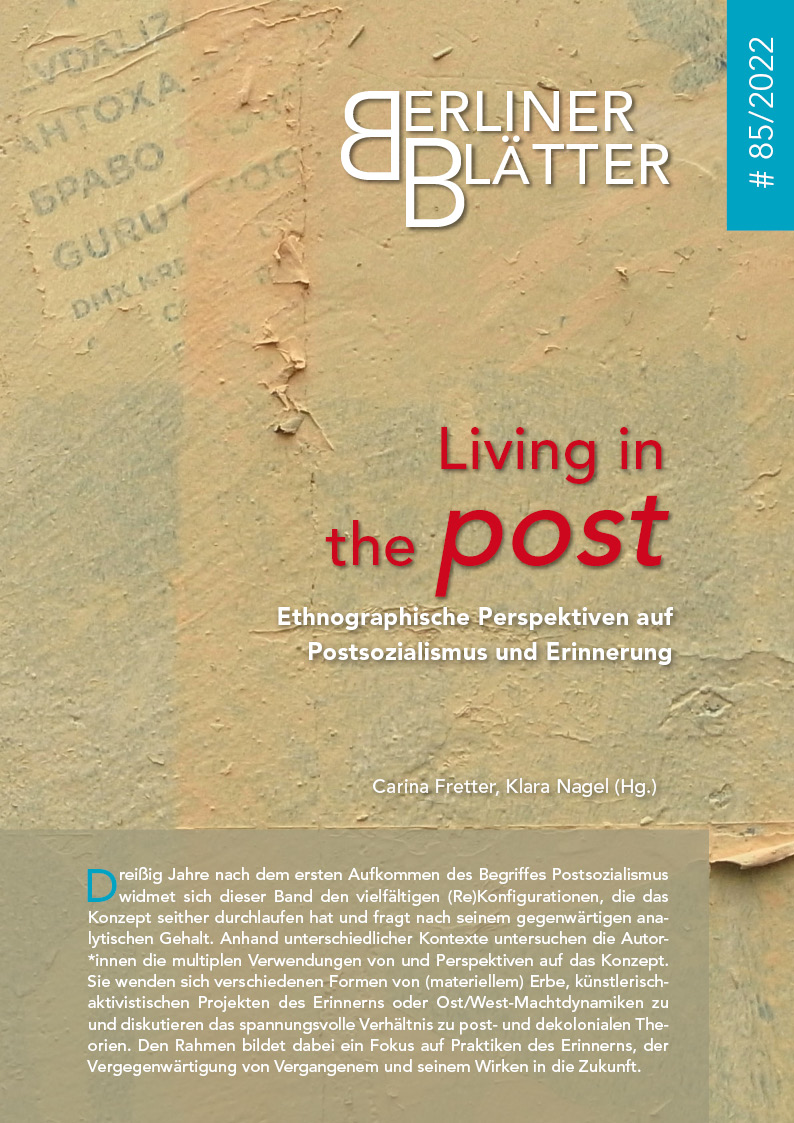Living in the post
Introductory Reflections on the Potentials and Limits of Post-Socialist Ethnographic Research
DOI:
https://doi.org/10.18452/23975Keywords:
Postsocialism, Memory, Ethnographic Research, Transformation, TemporalitiesAbstract
The concept of postsocialism is now not only used as an academic category, but increasingly adopted in everyday life and artistic-activist contexts. In the introduction to this volume, we provide an overview of the development of the concept and elaborate its frictious but productive relationship to post- and decolonial theories. How can the concept of postsocialism be made analytically productive 30 years after the collapse of state socialist systems? For this purpose, we turn to practices of remembering and connect these with reflections on the concept of postsocialism. The individual articles illuminate this connection by means of different regions and phenomena. Through their diverse methodological approaches and perspectives they make important contributions to the discussion on the analytical productivity of the term postsocialism. The ethnographic focus on practices enables an analysis of context-specific connections without losing sight of overarching dynamics. Through the conceptual reference to the past, it is always invoked as a comparative figure. An ethnographic view can shed light on this tension of the concept between invocation and reification.
Downloads
Published
2022-02-21 — Updated on 2022-02-21
How to Cite
Nagel, K., & Fretter, C. (2022). Living in the post: Introductory Reflections on the Potentials and Limits of Post-Socialist Ethnographic Research. Berliner Blätter, 85, 5–18. https://doi.org/10.18452/23975
Issue
Section
Artikel
License
Copyright (c) 2022 Berliner Blätter

This work is licensed under a Creative Commons Attribution-NonCommercial-ShareAlike 4.0 International License.








